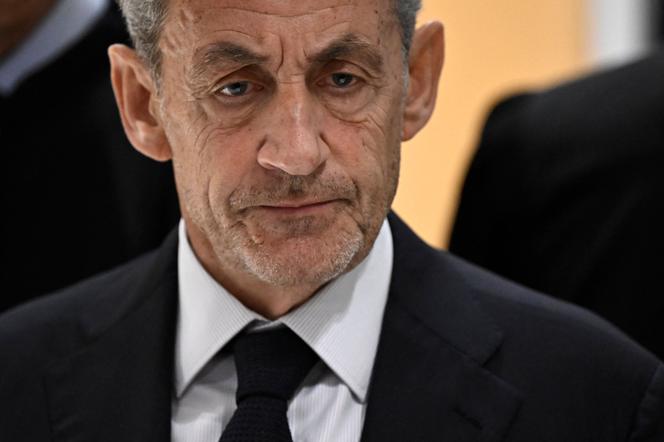


A Paris court convicted Nicolas Sarkozy of criminal conspiracy and sentenced him to five years in prison on Thursday, September 25, in the case of alleged Libyan funding of his 2007 campaign. The court cited the "goal of preparing to commit corruption at the highest possible level once he was elected president of the Republic." It is the first time in the history of the French Republic that a former president will spend time behind bars.
Yes. Sarkozy was simultaneously sentenced to several penalties:
The court has ordered that Sarkozy's prison sentence be applied immediately, even if he appeals. It gave him only a delay to organize his professional and personal life before his incarceration.
Sarkozy was then summoned by the National Financial Prosecutor's Office (PNF) to appear on October 13 and be notified of the date he will have to register as an inmate, which could be the day of or a later date. He is therefore expected to be behind bars within a few weeks or months.
Once incarcerated, the former president may, like any other prisoner, apply for parole. He is, however, not eligible to serve his sentence at home with an electronic bracelet, as he did for a previous conviction.
Yes. Immediately after the hearing, Sarkozy announced that he would appeal. A new trial should therefore be held within a short timeframe (about six months) as the case involves detainees. (In similar cases without detainees, the timeframe is typically over a year.)
However, the appeal will not suspend Sarkozy's incarceration in the meantime. The court decided to make the sentence effective immediately, a measure deemed "essential to ensure the effectiveness of the sentence given the significant public disorder caused." Without this provision, Sarkozy's appeal would have suspended the prison sentence until a new trial could be arranged.
The same reasoning was used by the judge who convicted Marine Le Pen of embezzlement of public funds: Even though she has appealed, she is currently barred from standing in any election. The measure is common in political-financial cases, in which the defense uses every possible avenue of appeal, thus delaying final judgments.
The PNF, which investigated the case, has also filed an appeal. This procedure is almost automatically conducted when a convicted defendant appeals, as it allows the appeals court full discretion regarding the new sentence that could be imposed on Sarkozy. Otherwise, the court would only have the choice to impose a sentence that was equal to or less than the one handed down by the first instance court.
The former president is most likely to be incarcerated at La Santé prison. This penitentiary, located in Paris' 14th arrondissement, has a wing reserved for public figures. Other political figures from his party, such as Claude Guéant and Patrick Balkany, served sentences there.
Sarkozy will not benefit from different detention conditions than those of other inmates, which are:
As a high-profile prisoner, Sarkozy may be recommended for being placed in solitary confinement, to avoid any risk of confrontation or danger from other inmates.
In theory, a presidential pardon is possible. However, the president can only pardon in cases in which sentences are final and enforceable. Because Sarkozy has appealed, he cannot immediately benefit from a pardon. To request a pardon, he would have had to forgo the appeal procedure and wait for the decision in his cell.
Article 17 of the Constitution grants the president "the right to grant individual pardons." However, the president cannot initiate this process: It must be requested by the convicted person, a third party (a family member, lawyer, prosecutor, etc.) or an organization (such as a charity or advocacy group).
The penal code specifies that a pardon application is processed "by the justice minister, after, where appropriate, preliminary review by any relevant ministers." The president then chooses whether or not to sign the request.
Since 2017, Macron has only granted one presidential pardon, to a 73-year-old woman serving a life sentence. During his presidency, Sarkozy pardoned 49 prisoners, including Jean-Charles Marchiani, a former state prefect who was convicted of influence peddling.
Beyond the Libyan campaign funding case, Sarkozy is implicated in several other judicial cases that could see new developments in the coming months and years.
In the so-called "Bygmalion" campaign overspending case, he will, on October 8, receive a decision from the Cour de Cassation, the highest appellate court, which he petitioned to overturn his conviction on appeal. He had been sentenced to one year in prison (of which six months suspended) for having exceeded campaign spending limits in 2012.
He has also been charged with "concealment of witness tampering" and "participation in a criminal conspiracy with a view to prepare organized judicial fraud" in a case concerning false retractions made by Ziad Takieddine. The investigation is ongoing, and it could result in him being ordered to stand trial or in the case being dismissed.
The former president's name also appears in three other judicial investigations: "Qatargate," concerning the controversial awarding of the 2022 football World Cup to Qatar; the Lagardère-Qatar case, involving corporate vote-buying; and the Reso-Garantia case, related to consulting activities he allegedly performed for a Russian group. At this stage, he has not been charged in these cases.
Translation of an original article published in French on lemonde.fr; the publisher may only be liable for the French version.
